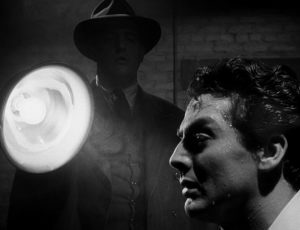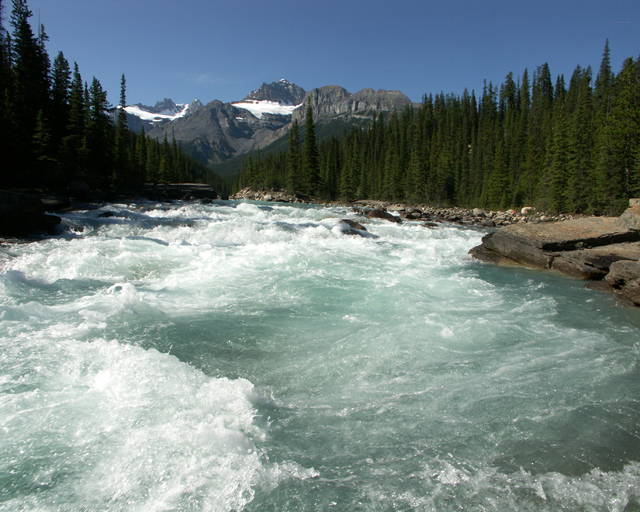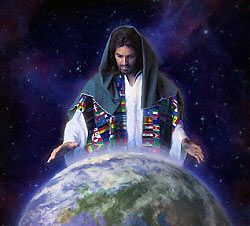Needs vs. Wants – Psalm 23:1
 The LORD is my shepherd, I shall not be in want.
The LORD is my shepherd, I shall not be in want.
I’ve pretty much been taught my entire life that God will supply all my needs, but NOT my wants. And there is a very famous passage which everybody quotes to prove that point: And this same God who takes care of me will supply all your needs from his glorious riches, which have been given to us in Christ Jesus. (Philippians 4:19) See? Needs.
But don’t forget the other phrase from that first line; and consider what the LORD, your shepherd has done for you:
He makes me lie down in green pastures
He leads me beside quiet waters
He restores my soul
He guides me in paths of righteousness
Your rod and your staff, they comfort me
You prepare a table before me
You anoint my head with oil
My cup overflows
Goodness and love will follow me all the days of my life
I will dwell in the house of the LORD forever
This is far from an exhaustive list, but note, He has even ushered you into eternity. Now if the LORD has done all those things for you, what else do you want? And speaking of want, the Hebrew word has several close relatives as translations. They are empty, some form of lack, and decreased. All those translations work in this verse. With the LORD as my Shepherd, I shall not be empty; I shall not lack; and I shall not decrease.
So many times we’ve had to compared the thought of God supplying our needs vs. God supplying our wants. But here it says wants, not needs. And that particular word is here, because it answers that very fundamental question: What do you want? And the answer is… the LORD. My favorite Psalm is Psalm 73, which sadly is not one of David’s, but it is still my favorite. And the one verse that ties directly into Psalm 23:1 is verse 25—Whom have I in heaven but You? And besides You, I desire nothing on earth. So you can see why David has no other wants— he has the Lord. Can you say the same? I hope so.





 God could have done a quiet work of salvation, He did after all, chose a small, even insignificant, people, in a remote part of the planet. They had many huge and notable empires nearby: Egyptians, Babylonians, Persians, Greeks, Romans, etc. But there was tiny Israel, always with another conqueror breezing through, and making them a (remote and inconsequential) part of an “intergalactic” empire. But one of the reasons God chose a small people was to ensure that they would never (try though they must) get the credit for their salvation. This salvation was very much a God-thing, and must not be confused for anything else. So when All the ends of the earth have seen the salvation of our God, they were seeing the salvation of our God.
God could have done a quiet work of salvation, He did after all, chose a small, even insignificant, people, in a remote part of the planet. They had many huge and notable empires nearby: Egyptians, Babylonians, Persians, Greeks, Romans, etc. But there was tiny Israel, always with another conqueror breezing through, and making them a (remote and inconsequential) part of an “intergalactic” empire. But one of the reasons God chose a small people was to ensure that they would never (try though they must) get the credit for their salvation. This salvation was very much a God-thing, and must not be confused for anything else. So when All the ends of the earth have seen the salvation of our God, they were seeing the salvation of our God.
 One thing. This is a very unifying approach to life, to faith—to whatever. The Hebrew text could actually say: One one I have asked. It may sound redundant, but think about it. Life is filled with one things that we must do, that need our attention. But what is the one One? Or should I say, Who is the only One. Four areas of your life will be changed forever by making the Lord, The One: Priority, Perspective, Purpose, and Practice.
One thing. This is a very unifying approach to life, to faith—to whatever. The Hebrew text could actually say: One one I have asked. It may sound redundant, but think about it. Life is filled with one things that we must do, that need our attention. But what is the one One? Or should I say, Who is the only One. Four areas of your life will be changed forever by making the Lord, The One: Priority, Perspective, Purpose, and Practice. One thing. This is a very unifying approach to life, to faith—to whatever. The Hebrew text could actually say: One one I have asked. It may sound redundant, but think about it. Life is filled with one things that we must do, that need our attention. But what is the one One? Or should I say, Who is the only One. Four areas of your life will be changed forever by making the Lord, The One: Priority, Perspective, Purpose, and Practice.
One thing. This is a very unifying approach to life, to faith—to whatever. The Hebrew text could actually say: One one I have asked. It may sound redundant, but think about it. Life is filled with one things that we must do, that need our attention. But what is the one One? Or should I say, Who is the only One. Four areas of your life will be changed forever by making the Lord, The One: Priority, Perspective, Purpose, and Practice. One thing. This is a very unifying approach to life, to faith—to whatever. The Hebrew text could actually say: One one I have asked. It may sound redundant, but think about it. Life is filled with one things that we must do, that need our attention. But what is the one One? Or should I say, Who is the only One. Four areas of your life will be changed forever by making the Lord, The One: Priority, Perspective, Purpose, and Practice.
One thing. This is a very unifying approach to life, to faith—to whatever. The Hebrew text could actually say: One one I have asked. It may sound redundant, but think about it. Life is filled with one things that we must do, that need our attention. But what is the one One? Or should I say, Who is the only One. Four areas of your life will be changed forever by making the Lord, The One: Priority, Perspective, Purpose, and Practice.